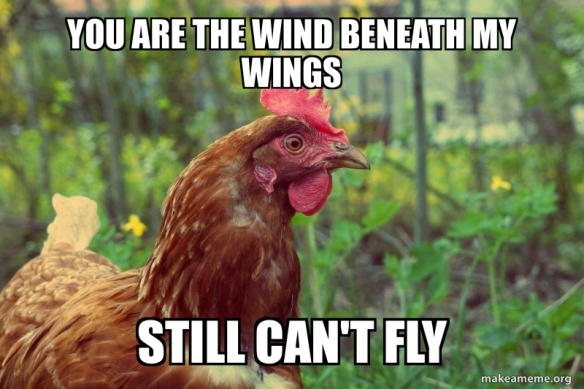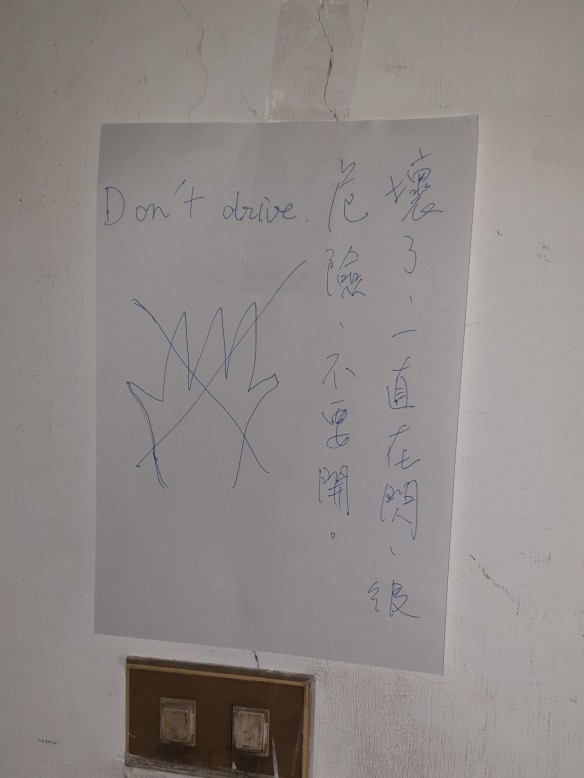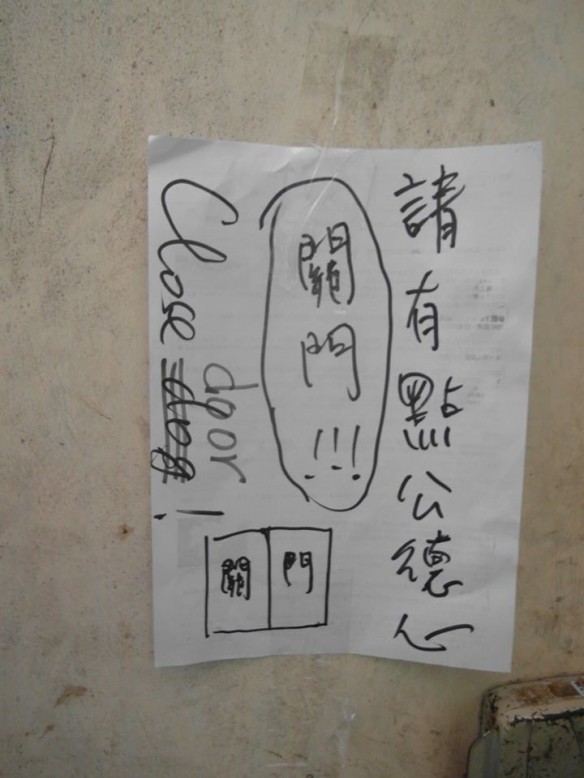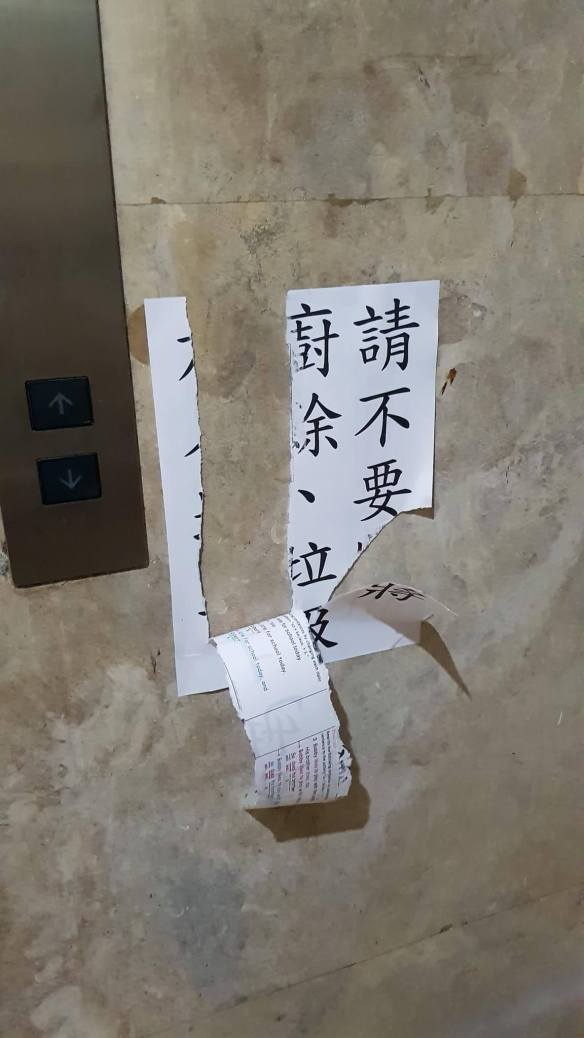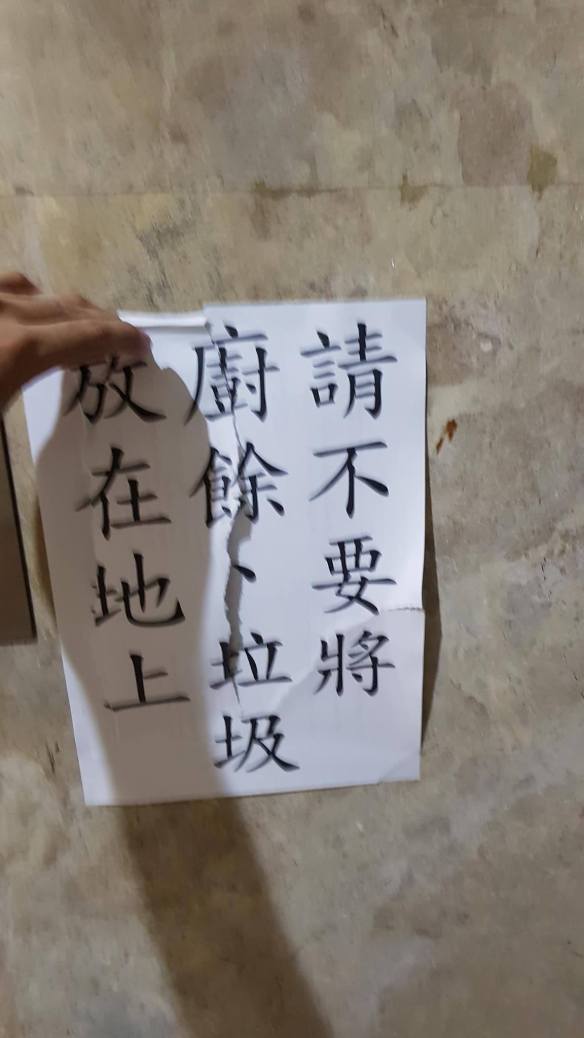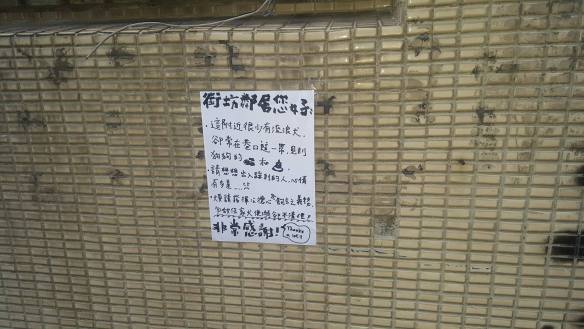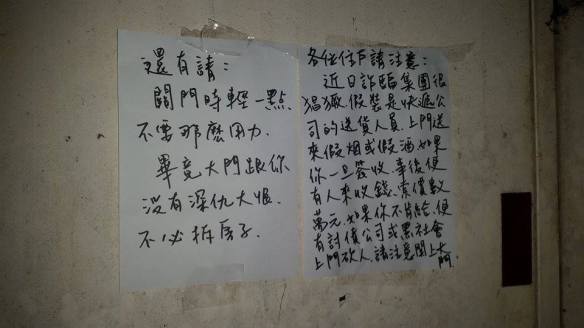
Found this beautifully-crafted note in one of the toilets at the Red House (紅樓), part of its power is that it’s actually stuck on the door in a way that seals the door shut:
本廁間又再 再 再 再 再次 因馬桶被丟入異物造成堵塞,請至本廁間使用的有緣人多加留意,勿將 衛生紙、濕紙巾、保險套、內褲、絲襪、垃圾袋、牙線、棉花棒、口紅、筆及所有不是尿及屎的個人隨身物品不小心丟入馬桶喔!
感謝體恤打掃婆婆的辛勞
本廁間修繕待料中 預計6/22修繕
This cubicle has been blocked again, again, again, again and again, due to inappropriate things being thrown into the toilet bowl. Can those special people that are drawn to use this toilet be more careful and not accidentally dispose of any personal item that’s not piss or shit into the toilet bowl, including toilet paper, wet wipes, condoms, underwear, stockings, trash bags, dental floss, cotton buds, lip stick and pens!
Thanks for understanding how hard our cleaning ladies are working.
This cubicle is under renovation until June 22
The font size seems to underline the sarcastic tone of the note and the combination of a polite register along with vulgar language. To be fair, that toilet seems to attract a lot of strange people.



